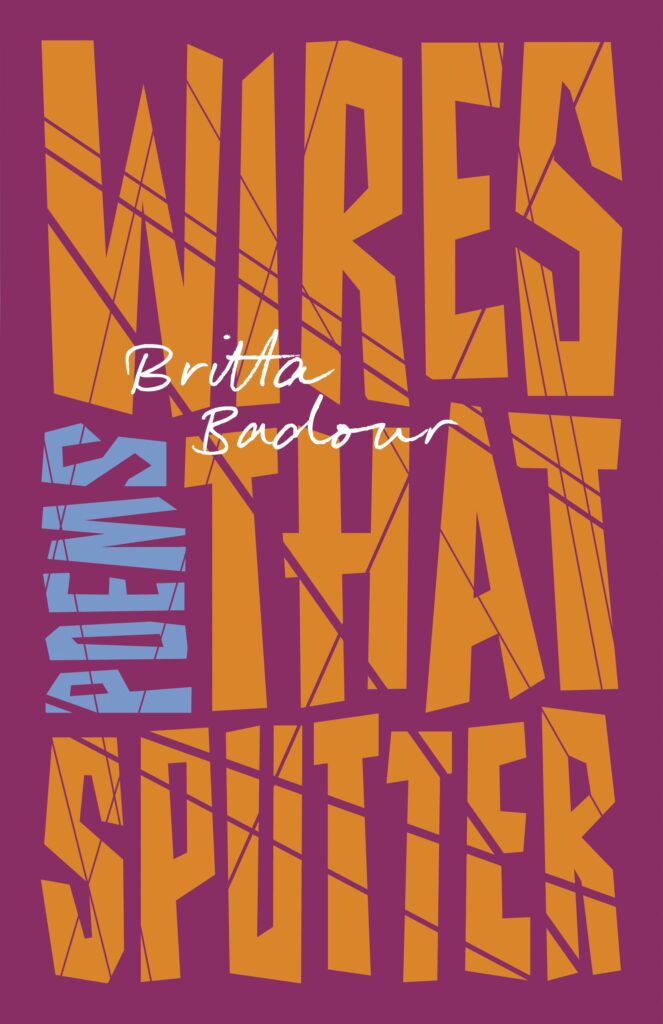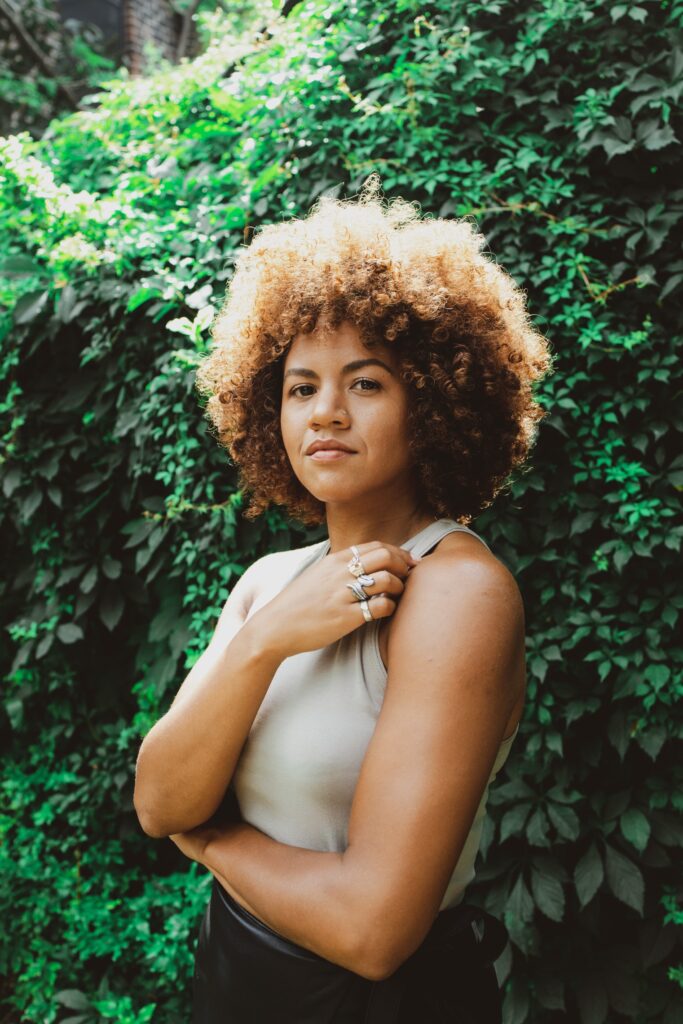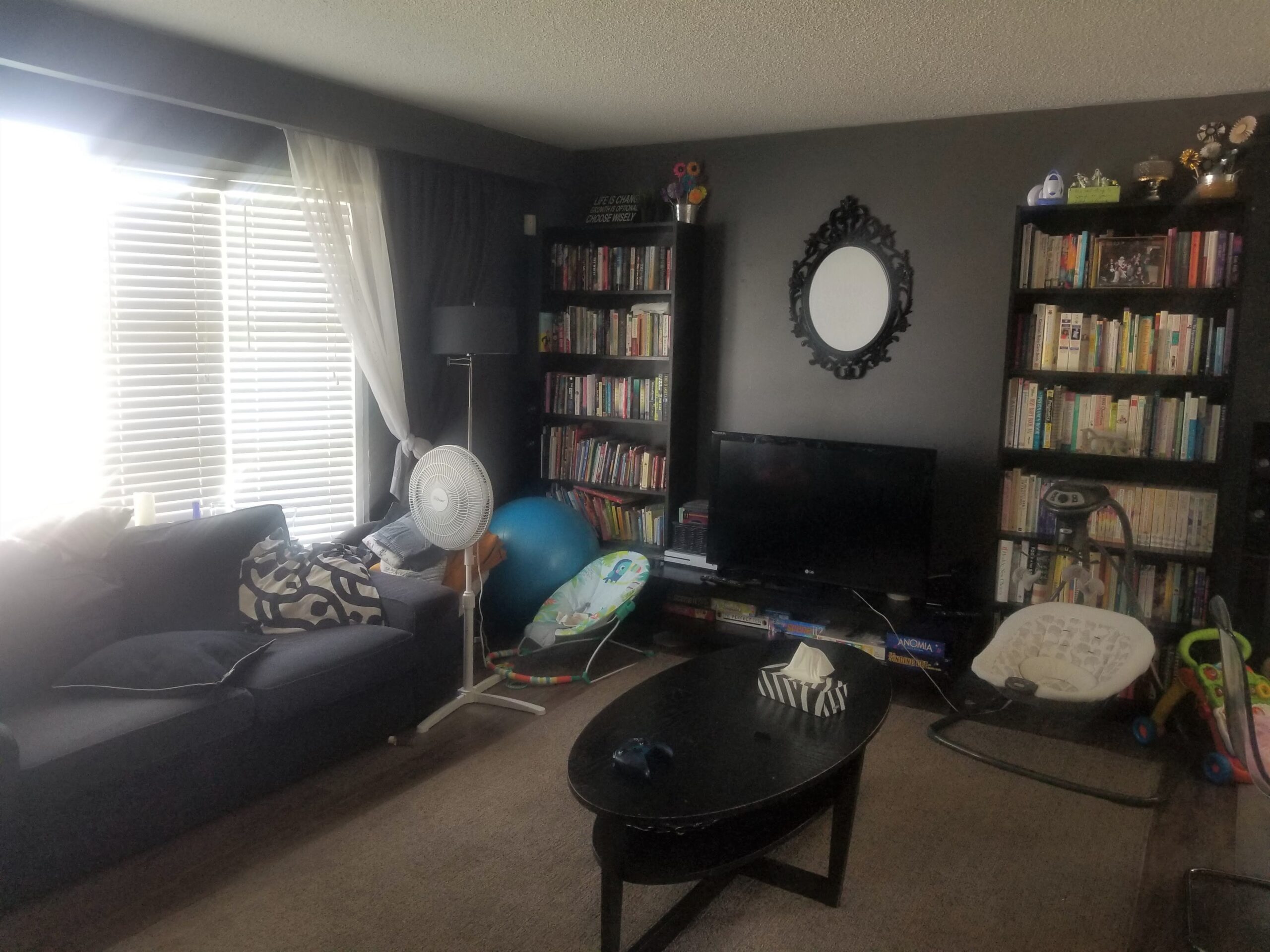By Kyle Marshall, Local Journalism Initiative Reporter
Spoken word poet Britta Badour is at the top of her game right now, and she’ll be bringing her talents to the Burlington Lyrics and Poetry Festival this month.
Britta B., as she is better known, will be reading from her book released last year, titled Wires That Sputter, on April 15 from 7 p.m. to 8:30 p.m. in Centennial Hall at the Burlington Public Library’s Central branch, and then she will lead those in attendance in a writing and spoken word exercise.
Hailing from Kingston, Ontario, where she was born and raised, Badour holds a Creative Writing MFA from the University of Guelph and is a professor of spoken word performance at Seneca College.
She also hosts and organizes artist-training seminars, poetry workshops, and social justice programs in partnership with organizations like the League of Canadian Poets, JAYU, Prologue Performing Arts, and Poetry In Voice.
In 2021, she was named Toronto Arts Foundation’s Breakthrough Artist and COCA Lecturer of the Year and her work has been featured in print, sound, and onstage across the continent in illustrious circles including the Art Gallery of Ontario, CBC Arts: Poetic License, The Walrus Talks, TEDx, and The Stephen Lewis Foundation.
She was also named by CBC Books as one of the three black Canadian writers to watch for in 2024.
Badour’s connection to poetry and writing started at a very young age.
“I remember the first time my mom taught me to spell my name, it just felt instantly this huge, phenomenal connection to writing,” she said.
Badour spent a lot of time reading and writing with her mom, who would have her get up and practice speeches. She would have her daughter pause, slow down, bring her volume up, work on eye contact, and give her other techniques to work on.
She would also get dressed up and sing old 70s Motown songs with her younger brother and entertain friends.
Badour used to write letters to a friend who had moved away. It made her feel like a storyteller and helped her feel more connected to the person she was missing but it wasn’t until grade five that she learned about poetry.
“I realized at that point that the way I was writing was through poetry because when we tell stories they usually have a beginning, a middle, and end, and I was writing more fragmented or broken scenes and that helped me to know the name for it,” she explained.
She continued to write throughout her school years but she didn’t know that it was possible to make a career out of poetry because every time she had poetry in school, it wasn’t a full unit or semester-long course.
Badour didn’t even look at a poetry book until she was in her 20s.
Because of what she was reading in school, writers such as Shakespeare and Robert Frost, she wasn’t exposed to any poets who were living and breathing.
“I thought that I’d have to be a dude or a dead person to be able to have a career in poetry.”
She was especially not exposed to any poets who were of Black or mixed heritage; there was no one that she felt that she could identify with.
As a result, she didn’t know a career in poetry was possible until she was in her last year of high school when she happened to be at a conference and the keynote speaker wanted to read the crowd a poem.
“I just remember sitting in the third row with my jaw dropped because I was excited, equally excited as I was embarrassed because I thought, if you’re reading poetry, you’re reading something very personal and that’s just embarrassing,” Badour explained. “But this person had it memorized and I hadn’t seen that before. It was kind of like watching someone do an offbeat rap.”
“And I thought to myself, ‘Well, I write, I wanna do that.’ And I thought about marrying my poetry with my public speaking abilities for the first time and I realized, well, I can do that. And then so the rest was kind of history.”
She would eventually get into open mics and shows but didn’t know there was even a term for spoken word until she discovered poetry slams.
She knew that once she got into poetry slams, she could start competing, but there was skepticism on whether it could actually turn into a successful career.
That skepticism didn’t come from external forces, as Badour had already found communities that made her feel supported, and her family has always been supportive of the dreams she wanted to pursue. It was internal doubt from within Badour herself.
Badour spoke of a poem she wrote called “Speak,” which deals with violence in the home. When she wrote that poem, she felt like it was something beyond what she was capable of. She felt like it was a story that was bigger than her.
“I write so confessionally, that was sort of a breakthrough for me where I realized that experiences that I was writing about were shared experiences,” she said.
“So that poem there with the way that it was written and the way that it was performed, I feel like it opened up a lot of doors for me professionally, but also emotionally and psychologically, because it was a true story that would also expose family as well.”
Badour explains, “It changed the way my parents interacted with themselves, with me, with society. So I think it did something both in the trajectory of how I can make a career out of poetry, but then also how I could be someone that sort of healed things in my family.”
She describes herself as a moody writer and that if she is feeling a really intense emotion, then that is probably what she will be writing about.
Inspiration for her comes from feelings, relationships, and whatever she may be reading or watching.
She explains that as someone who grew up without seeing what was possible with her particular art form, that it is really important to her to have representation and have someone speak on their experiences as however they identify.
Some of the most challenging aspects of choosing this career path is being able to pay the bills and the aforementioned fear of her material not being good enough, but the positives have been being able to mentor someone into believing in themselves and having confidence and comfort on stage.
Being able to work with her own mentors, acclaimed poets Canisia Lubrin and Dionne Brand, is what really helped get the idea for her book up and running.
She always wanted to have a book published, but for a while didn’t know if it was going to be possible — until she ended up getting accepted into a Masters of Fine Arts and Creative Writing program at the University of Guelph.
“I got to work with the people that I aspired to be like and got to have a greater sense of confidence and respect about where I was coming from in terms of my own writing skills and habits,” Badour said.
She estimates that 90–95% of the poems in the book were worked on during the eight-week summer mentorship that she had with Lubrin.
Lubrin helped open a lot of doors in Badour’s mind, introduced her to a lot of other writers, and assigned long reading and listening lists.
In the next semester of school, she finally got to workshop some of her poems. And then, in the semester that followed, she worked one-on-one with Brand to prune and polish the poems that would become Wires That Sputter.
She didn’t get a publishing deal until the end of the following year, but once she struck a deal with McClellan and Stewart, she discovered that Lubrin was the incoming poetry editor. The book debuted in March of 2023.
Badour workshopped the title with Brand, coming up with a few different titles, but originally, she wanted to name it something different.
“Wires That Sputter just felt so different and so me, and also true to the way this book is created where there’s sputters of moments that I think are punctuated more than others,” she said. “I’m hoping that if it’s not the whole book, it’s a poem, if it’s not a poem, it’s a line or two that people resonate with.”
She dedicated the book to her grandma and cousin, both of whom have passed away, but were two people that Badour had a lot of admiration for and looked up to.
Badour is currently working on her hosting skills, hosting several events including the YWCA Women of Distinction awards in Hamilton and an international gig. She has also recently pursued the idea of writing a novel in verse.
But for now, she is experimenting and exploring and just living life. She is very excited to be participating in the Burlington Lyrics and Poetry Festival.
“The reason why I read or the reason why I perform is to find connection to others. So I guess the thing that I look for most is who’s going to come and talk to me after and tell me that they’re working on something, that they’re writing something, or they read something that reminded them of something that I said.”
Registration for Badour’s workshop and reading, entitled “The Power and Presence of Spoken Word,” is now open and can be found at https://attend.bpl.on.ca/event/10245987. It is free, and anyone can attend, but there are limited spots.
Wires That Sputter is available both in print and in the form of an audiobook and can be purchased via Amazon and Badour’s website at http://brittab.com/buymybook.
Correction notice: we have corrected this article to reflect that Britta Badour was born in Kingston, Ontario, rather than Kingston, Jamaica. Our apologies for the mistake.





